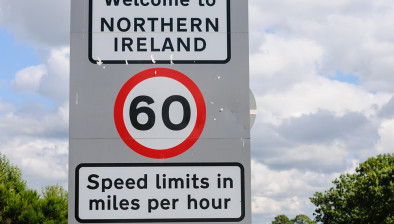NI: Court of Appeal: Licence holder was entitled to apply for occasional licence for a de-licensed function room in hotel
The licence holder for a hotel in Toomebridge was entitled to apply for an occasional licence for a function room which had been de-licensed for under-age events, the Court of Appeal has ruled.

About this case:
- Court:Court of Appeal
- Judge:Lord Justice Treacy
In a case stated to the court, Lord Justice Seamus Treacy concluded that the Recorder of Londonderry was incorrect in law in deciding that the licence holder was not permitted to apply for an occasional licence for the unlicensed part of the premises.
Background
Creagh Concrete Products Limited is the licence holder for the Elk Inn, Toomebridge. In December 2016, the function room at the Elk Inn had been de-licensed to allow under-age functions to take place in that part of the premises.
In March 2018, Creagh Concrete applied for an occasional licence for an event in the function room to temporarily re-licence the room. The District Judge (Magistrates’ Courts) refused to grant the occasional licence.
On appeal, the Recorder of Londonderry was asked to consider whether an occasional licence could be granted in respect of an unlicensed part of the building. The Recorder concluded that the definition in Article 2(3) of the Licencing (Northern Ireland) Order 1996 defining “premises” means anything within the normal boundary line of the premises.
Case stated for the Court of Appeal
The Recorder stated the following case for the Court of Appeal:
“Was I right in law in deciding that the appellant was not permitted to apply for an occasional licence for an unlicensed part of its premises pursuant to Article 30 of the Licensing (Northern Ireland) Order 1996?”
Article 30(1) of the Licensing (Northern Ireland) Order 1996 provides that a court may grant an application by “a person who is the holder of a licence for premises to which this Article applies” for an occasional licence authorising that person to sell alcohol at such place “other than those premises”.
Creagh Concrete contended that the unlicensed function room was not part of the licensed premises for the purposes of the Licensing (Northern Ireland) Order 1996 for the following reasons:
- Article 30(1) is a plainly permissive part of the licensing code and is merely explanatory of what is permitted. Creagh Concrete claimed that the purpose of the provision permitting occasional licences is simply to permit licences to be obtained occasionally for premises other than premises that are in fact licensed. Accordingly, when the Order refers to a place, other than those premises, it is merely referring to a place that is not already licensed;
- The person who can apply for an occasional licence is the holder of a licence for the licensed premises. Accordingly, the application by the holder of the licence for the Elk Inn is for an occasional licence for a place other than those licensed premises, as the function room is not part of the licensed premises;
- If a prohibitive interpretation was correct it would mean a holder of a licence other than the Elk Inn would be able to apply for an occasional licence for the function room at the Elk Inn whereas the holder of the licence at the Elk Inn could not. Creagh Concrete contended that this would be a plainly ridiculous result and contrary to a true and purposive interpretation of the legislation.
Court of Appeal
Lord Justice Treacy said that, taken as a whole, Article 30 of the Licensing (Northern Ireland) Order 1996 intends to allow the three principal types of existing owners of licensed premises to sell alcohol at a place “other than those premises”. The defining qualification for the permitted applicants therefore was one of three identified kinds of licensed premises (as set out in Article 5(10(a) of the Licensing (Northern Ireland) Order 1996).
The statutory scheme was therefore designed to allow these persons to seek permission to extend their licences to “other” places, i.e. to places other than the licensed premises with which they are associated.
Lord Justice Treacy concluded that the licensed premises from which these “other places” are to be distinguished are those as defined by Article 2(2) of the Licensing (Northern Ireland) Order 1996 i.e. other places within the hotel premises or the other part or parts of the premises for which a licence is in force which are delineated as the part/parts of those premises in which intoxicating liquor is permitted to be sold.
Lord Justice Treacy said the answer posed in this case stated must therefore be “No”.
Lord Justice Treacy added that this decision did not dispose of all cases like this one. It said that while it could now be considered possible to apply for an occasional licence for an unlicensed part of a bar premises, it would remain necessary for each applicant in cases of this kind to satisfy the other requirements of Article 30, including being able to satisfy the court of the bona fides of the application – which would involve proving to the court that the event for which an Article 30 licence is sought is a genuine “occasional” event organised by a body which satisfies all the relevant criteria.
Lord Justice Treacy emphasised that the ruling dealt exclusively with the point raised in the case stated, and it would be a matter for the Magistrates’ Courts to satisfy themselves that all the requirements of Article 30, as interpreted by the Court of Appeal, were fully complied with in every future case.
- by Seosamh Gráinséir for Irish Legal News








